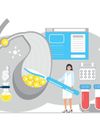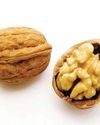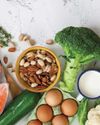
Testosterone deficiency, or low T, negatively affects a man’s quality of life and is a known risk factor for early death. Testosterone levels are at their highest by early adulthood, and then decrease by 1–2 percent each year around age 40.
Why is low T harmful? Testosterone has effects on the brain, skin, bones, and heart, and impacts erectile function, fat metabolism, muscle growth, bone density, energy production, lipid levels, insulin balance, and much more.
The Most Common Cause of Low T
Primary hypogonadism, which occurs when the testicles don’t produce enough testosterone, is the leading contributor to low testosterone. This may be spurred by certain endocrine-disrupting chemicals that find their way into the body through water bottles, and other plastics, cosmetics, canned food, fertilizers, toothpastes, clothes, soaps, paper, textiles, carpets, utensils, deodorants, bedding, and other commonly used products.
The Best Way to Get Tested
The primary test for testosterone deficiency is total testosterone. Unfortunately, there isn’t a consensus as to what precise range indicates a deficient blood level of total testosterone. Laboratories differ in their testosterone reference ranges, although they normally range from 250 ng/dL to 400 ng/dL and up to 1000 to 1100 ng/ dL. The American Urological Association states that a total testosterone level below 300 ng/dL is a reasonable cutoff for healthy testosterone.
This story is from the November 2020 edition of Better Nutrition.
Start your 7-day Magzter GOLD free trial to access thousands of curated premium stories, and 8,500+ magazines and newspapers.
Already a subscriber ? Sign In
This story is from the November 2020 edition of Better Nutrition.
Start your 7-day Magzter GOLD free trial to access thousands of curated premium stories, and 8,500+ magazines and newspapers.
Already a subscriber? Sign In

Strike A Healing Chord
Soothe your mind, body, and spirit with three simple sound therapy techniques for self-care.

Laura's Gourmet Granola
If you’re tired of granola that’s more candy than health food, chef and entrepreneur Laura Briscoe’s offerings are just what you’ve been looking for.

News Bites
Caffeine, Peanuts, CoQ10, and Iron Deficiency.

The Overlooked Keys to a Healthy Gallbladder
Keep your bile thin and free-flowing by focusing on supportive foods, supplements, and physical activity.

Go Nutty This Year
This über-healthy alternative to traditional lattes features homemadewalnut “mylk,” along with antioxidant-rich green tea and berries.

The Three Stages of Infection
What you need before, during and after an illness, and why you need different fixes for each stage.
Taming the Flames
How to beat back chronic inflammation and protect yourself from related disease.

Deconstructing the Flexitarian Diet
How being a part-time vegan can make you healthier.

Brain Regain
How one senior used a leptin-focused diet (high-fat, no carbs) to recover from a cognitive injury, reconnect with his family, and reclaim his health.

Healthy Aging— Head To Toe
Science-backed supplements to protect all your parts.